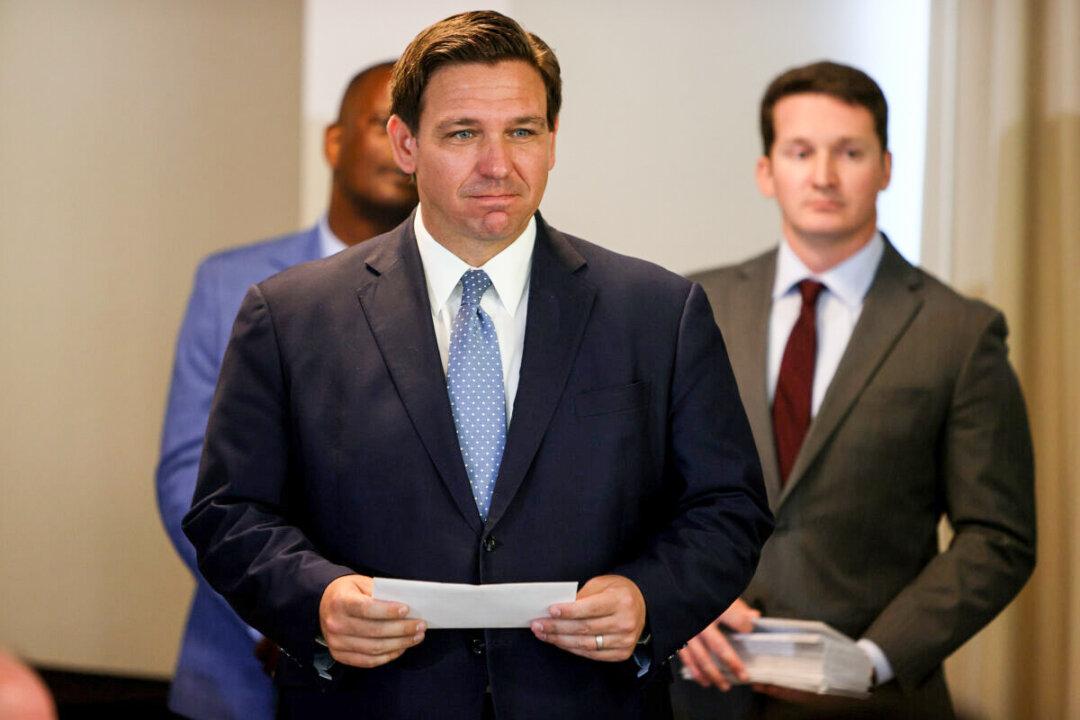PUNTA GORDA, Florida–Gov. Ron DeSantis told a room full of people waving “Year of the Parent” signs in Daytona Beach that Florida is “doing education, not indoctrination” as he signed the Curriculum Transparency (HB 1467) bill into law on March 25. The law provides for transparency of instructional materials for school districts, sets term limits for school board members, and protects the rights of parents.
“We are going to make sure that parents have a seat at the table,” the Republican governor said of the bill that allows parents to see—and challenge—teachers’ instructional material, required reading lists, and books in school libraries. ”Sunlight is the best disinfectant.”




